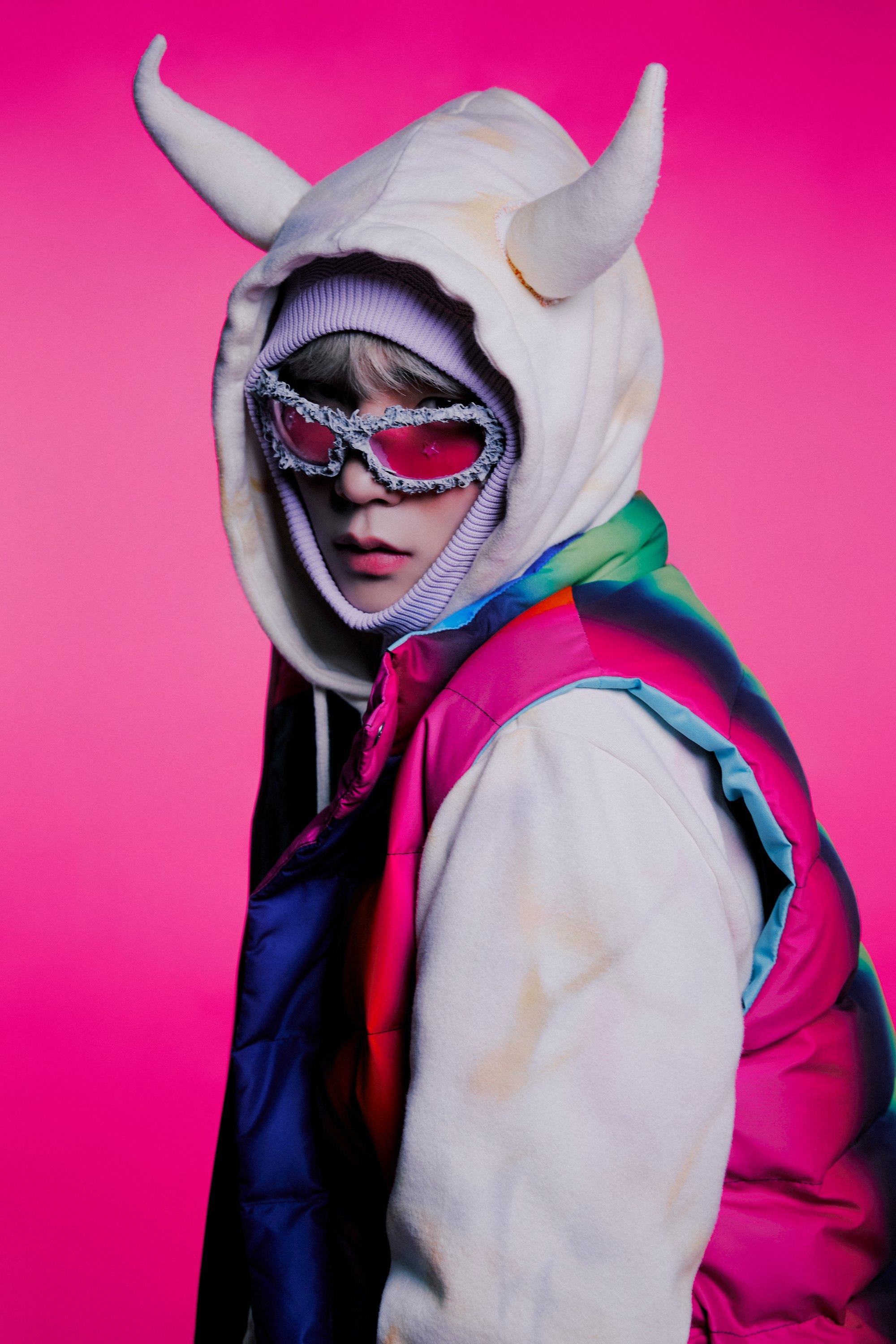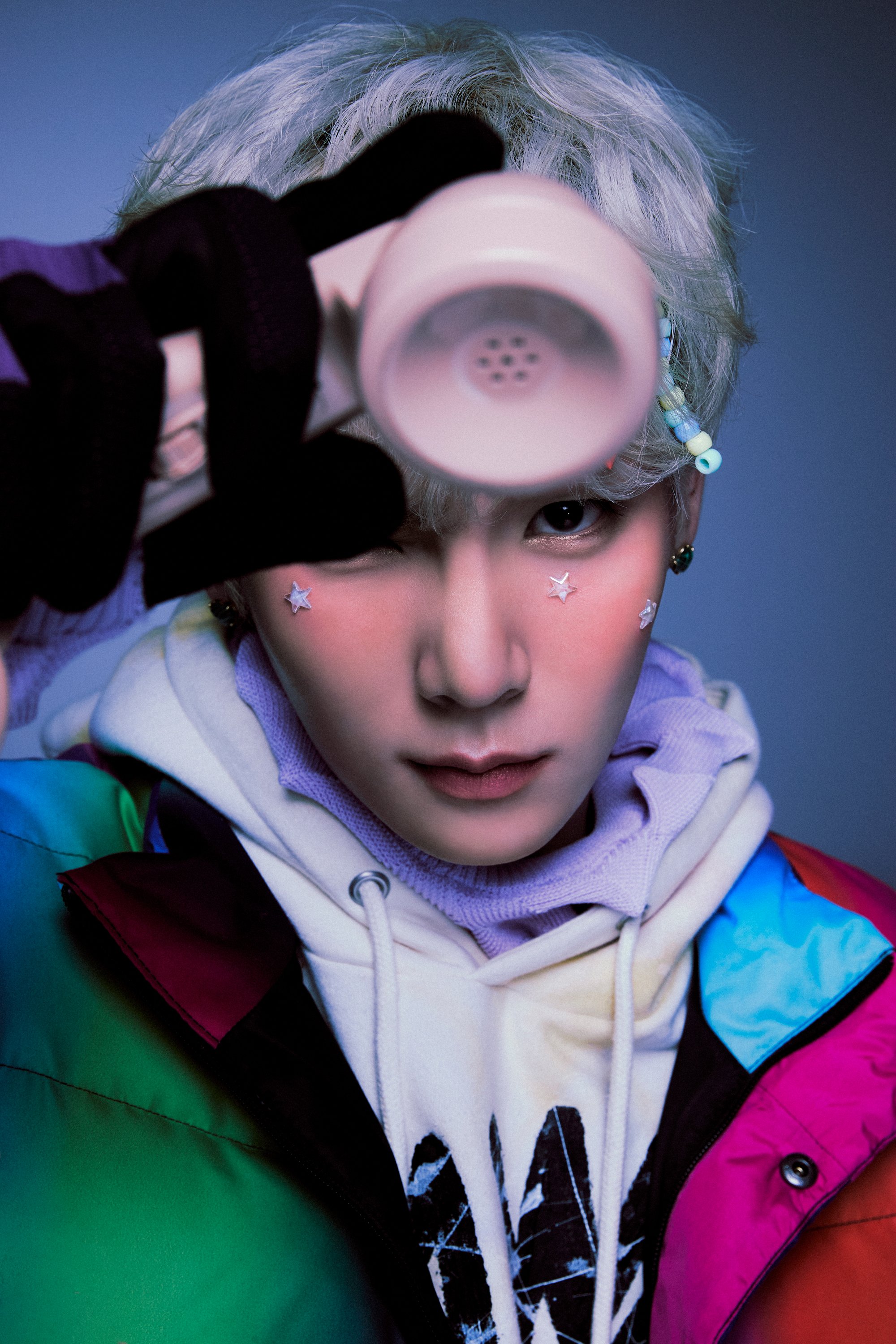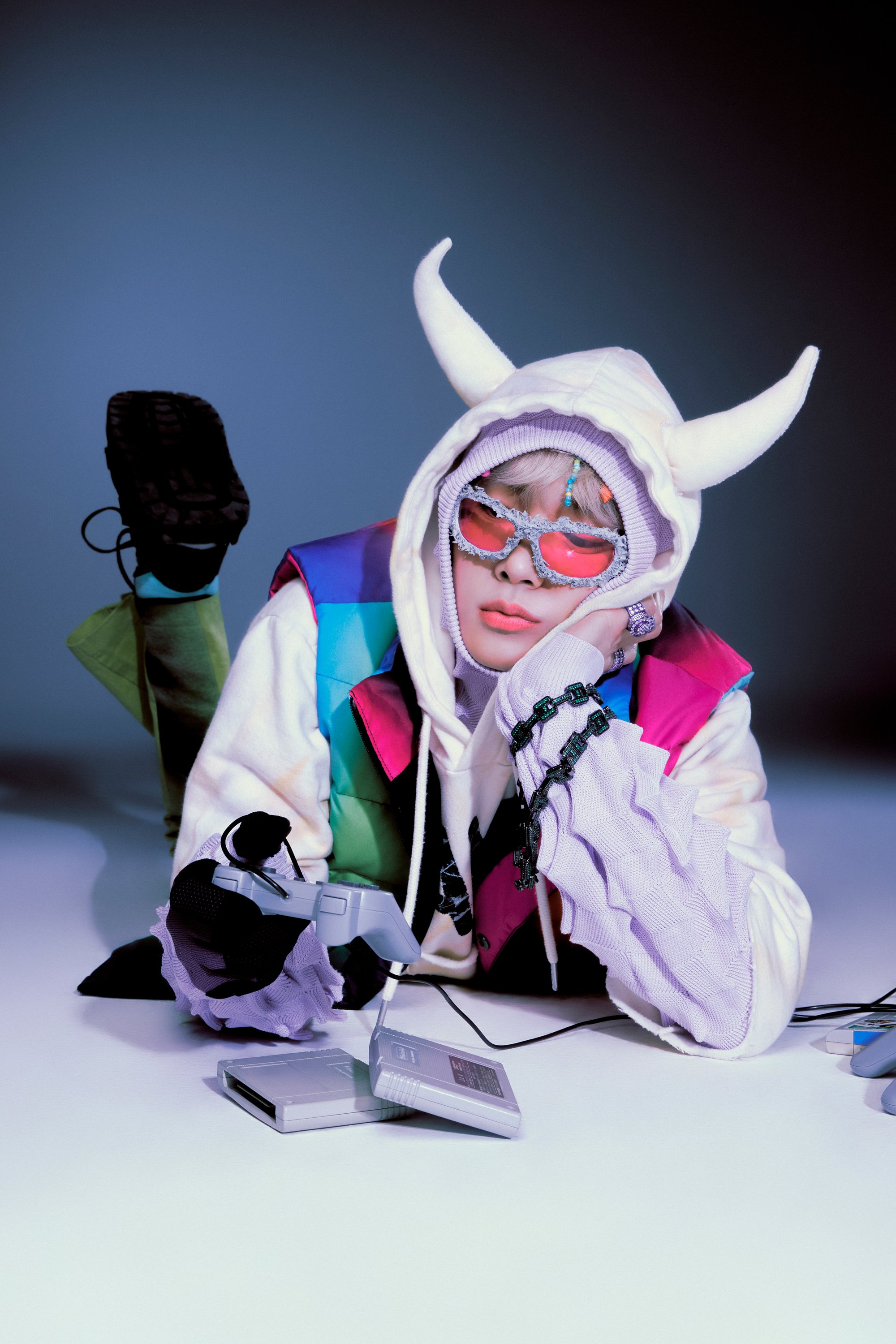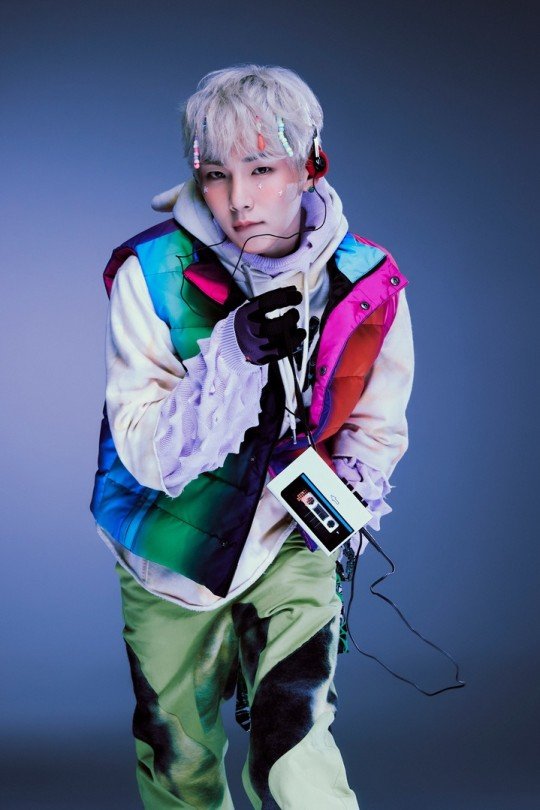SHINee’s Key is the Anti-Hero of K-Pop
Gasoline, 2022; SM Entertainment
Since his debut in 2008, SHINee’s Key has moved as a chameleon in K-Pop. He’s the rare artist who can transform into whatever concept is handed to him. A force of a performer who drives fashion to maximalist sky-high heights as the devil’s angel in Lucifer or the starry-eyed prince of Atlantis. But sometimes, he’s even surprisingly human, like when he dared to be transgressive and wore a “GRL PWR” shirt in the “VIEW” video. That move brought streetwear to K-Pop.
But in 2021, Key was eager to execute a concept he had envisioned for over a decade. It would become known as The Retro Trilogy: a trio of albums that paid homage to the imaginary world of his youth and the pop culture that shaped his artistic worldview.
This month’s release, “KILLER”, completes the final piece of the Retro Trilogy. “KILLER” is the repackage of Key’s second full-length album “Gasoline” and demonstrates that Key is a diligent student of pop culture. He’s an artist eager to push his art into every dimension. Take a look into his diverse discography, and you can consume Key’s work visually, sonically, and, most interesting, tangibly. The album’s sleek packaging resembles a vintage Playstation video game box with Key staring directly into our eyes as he guns a motorcycle. Inside the album are character cards, photocards, and posters.
KILLER 2023, SM Entertainment
Key’s on a motorcycle, too, in the song’s music video. Here, he dances in an abandoned subway station and rides on empty streets during a dark night as he sings about an ex who still haunts him. “The ashes of dead emotions/ All come back to me,” he realizes. When he performs the song’s point choreography, he creeps his fingers up his arm like a spider searching for prey.
If heartbreak is the game on “KILLER”, Key is okay with being the bad guy. Throughout the album, Key relishes in being a badass. He’s the rebel who wants to have the most fun when he asks, “Why so serious?” on “Heartless”. He continues, “I think it’s getting hot/ To an uncomfortable amount/ It might burn me.” But this lover is okay with being burned. In fact he’s diving headfirst into the flames.
By the title track “Gasoline”, Key’s lit the match to ignite the flames. “Inflame me/ Wind me up/ I’ll take it all,” he sings defiantly then tempts us, “One spark is all it takes.”
Key is up to his elbow in flames in the “KILLER” video. In several shots, he stands in front of a car consumed in flames; did he set the car on fire or was the deed committed by a scorned lover? Whoever the culprit is, one thing is certain. With each release, Key has scorched the earth to prove his love – and his dedication to pushing his art past what we expect from a K-Pop artist. Juxtaposed next to “KILLER” is the grand opulence of “Gasoline”. Self-love shifts into focus for this video and Key ascends the throne of fashion icon. He dons ornate crystal headpieces that resemble the Virgin Mary and, likewise, headpieces that remind me of Angelina Jolie’s interpretation of Maleficent. In some frames, Key, wearing a gold lamé bodysuit, dances on a planet that could be Mars. He acts as a devious anti-hero: The kind of villain you root for. A complicated, messy hero who sets you free from conformity.
The Retro Trilogy finds Key at his most compelling: A pro in the K-Pop industry asserting why he’s shifted the needle on gender-bending representations and advocated for autonomous artistry. With each release, Key has sunk his teeth deeper into the music and ideology of rockstars from a bygone era: the genderless fashion of Grace Jones, the controversial transgressions of Madonna or David Bowie’s cosmic heights of Ziggy Stardust. “For me, there's no boundary between femininity and masculinity,” he declared – and he’s inspired by each aesthetic.
Gasoline, 2022, SM Entertainment
This fight to be himself – a fiery ball of self-empowerment – has been hard-won. “I was brought up in a very conservative, traditional household,” Key wrote in 2021. “My parents wouldn't even let me pierce my ears.” He was told that he would never be a star. He was too shy, his parents told him. He wasn’t pretty enough, the public reminded him when he’d search for the most popular members of SHINee online. But as he grew more confident in his artistry, Key embraced the story that clothes could tell about himself. “I decided to express everything — my music, my identity — [through my look]. Beauty and fashion became tools for me to emphasize certain things about myself.”
Key talks his shit on “Gasoline”. He feels like he’s earned the right. By his own admission, Key never thought he’d be a pop star past 30. “When I looked at other artists I noticed by 30 most of their careers would start to dwindle,” he wrote. But at 31, Key has never been more vibrant or clearly seen. He has room to be cocky and to flex that he’s number one. He’s likely your idol’s idol. Your idols who don’t fit neatly into a category will likely have it easier because of his bravery.
But this isn’t exactly what makes Key an important artist. The power of the Retro Trilogy ripples from Key’s compulsion to defy society’s expectations for men like him. Key’s Retro Trilogy imagines a new universe for all like him: The Little Freaks, as he calls his fans, who make others uncomfortable can find a place in this shared world. In the promotional images for “Gasoline”, Key created his own little freak: a furry purple and pink creature.
“I think “freaks” is meant to be more about taking those individual creatures and presenting them as heroes,” he explained in the same interview. “That’s kind of the meaning that stands behind the freaks for this [album] as well.”
The freaks who Key identifies with – or even finds cute and cuddly – today are often villains. They’re the kind of people that society is generally scared of: Freddy Kreuger in Nightmare on Elm Street, the Gremlins, Edward Scissorhands. The freaks of those films actually remind him of himself. “I shared how movies that I saw back in the day that I thought were scary, kind of feel cute looking at them now,” he said about how he created the art for “Gasoline”. “Those words that came out of my mouth were what the team turned into text form.” A similar villain from these slasher flicks is Freddy Kreuger, the monster who preys on teens’ dreams.“Freddy Krueger isn’t scary anymore,” Key laughed. “He’s cute!”
Let the messages of Key’s songs resonate with you and you’ll find an artist feeling quite nurturing towards himself and the Little Freaks like him. In his interview with Billboard, he recalled reading the journals that his mother kept as he was a child. Reading through the stories of his childhood and looking through photos his mother kept, Key saw a new understanding of himself “It’s just proceeding with understanding and feeling that it’s a time where I can be very proud of myself, of all the accomplishments and things that I’ve done,” he explained. He chronicled the stories into the lyrics of “Proud”, the final track of “Gasoline”. “I’ve spent probably a good 17 years or so at SM [Entertainment], including my pre-debut days. It’s a message of just saying, “You’ve done a great job.” It’s a message of comfort to myself.
Looking back, Key mentioned to NME, is not easy. In the most personal sense, Key’s music is meant to comfort and to simultaneously empower you. “It wasn’t really pleasurable,” he recalled about writing his most personal songs. But listen closely to the closing of “BAD LOVE” and “Gasoline” and you’ll hear the stories of a man choosing to give the teenager version of Kim Kibum the love he never had. Looking at the boy who could never express himself at 18, Key wrote a line that leaned both into the weird and the tender, “I would love to watch the end of my world with you.”








